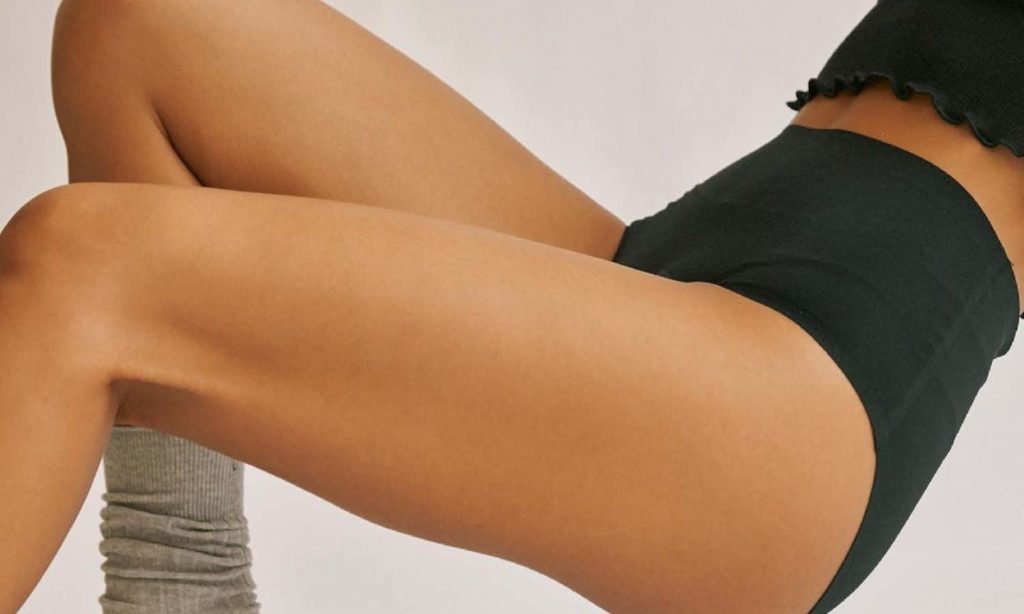Endometriosis affects 1 in 10 women and let me tell you, it’s a real thing.
I found out that I have endometriosis in my early twenties. I had the occasional painful period in my teen years, but they were so few and far between that I didn’t think too much of it.
Even still, as they became increasingly worse, doctor after doctor told me that there’s was nothing I could do about it and that some women just “have it worse” than others.
The not-doing-anything-about-it part wasn’t what got to me. For years, I felt entirely alone, like I was struggling really terribly with something that every woman goes through.
I’d look around me and think “isn’t anyone else in crippling pain?”. Other women seemed totally unaffected by their periods, as though they were a nuisance, but a manageable one.
Every woman experiences endo differently. For me, it’s nausea, dizziness and fluctuating temperatures in the week leading up to my period and then for the first two to three days of bleeding, my cramps are unbearably sore.
Some months are better than others. Sometimes I can take some strong-ish painkillers and carry around a hot water bottle, going about my day without too much drama. Other months, painkillers don’t do the trick and I feel sick, in pain and exhausted. In those moments, I don’t feel as though I can do my life and it is really debilitating.
Recently, conversations around paid menstrual leave have been floating around corporate Australia. In an article on the ABC, Future Super is mentioned as one of the first businesses in Australia to introduce a paid menstrual leave policy.
According to the ABC, employees at the retail superannuation fund can take up to six days of menstrual and menopause leave per year, separate from personal or sick leave.
Honestly, it makes so much sense to me. Having endo, or even just a bad period day, is one of the most debilitating experiences. You feel all kinds of unwell, tired and sore, but you’ve “just got your period” and you can’t do anything about it.
Although menstrual and menopause are broad categories, I assume they cover things like endometriosis. My only thought is that in severe cases of endo, you could be in bed for up to a week. Would menstrual leave be different to endometriosis leave? I think the conversation is at too early of a stage to know as of yet, but will hopefully evolve to cater to different types of menstrual conditions.
With more information on the pain caused by a bad period or endo I think has definitely made people more aware and sympathetic than they used to be, but there’s still an element of shame put upon women for struggling with their bodies.
Growing up, we get teased about our periods. If we’re in a bad mood people say “it must be that time of month” or they use it as a reason why we can’t do things, like “she’s not playing well today because it’s that time of month”. We feel as though we constantly have to prove that we’re tough and we can push through it, when in reality it’s f*cking painful and our bodies just really need to be respected and rested.
In an upcoming paper, University of Sydney researchers have found that 17 countries have implemented or are considering menstrual policies with Australia emerging as a global leader on the issue, as reported on by the ABC.
“One of the reasons why companies are engaging with this policy space is because they argue that menstruation is not an illness and that workers should not have to be penalised by having to deplete their sick leave,” says Sydney Colussi, research associate from the University of Sydney.
The researchers also found that younger workers were more positive about the potential for menstrual leave to be a workplace gender equality measure.
I think this would be an incredible step to help destigmatise menstruation. It really is time that we saw it for what it was, which is absolutely necessary and in some cases, extremely painful and life-altering.
Read more stories from The Latch and subscribe to our email newsletter.

